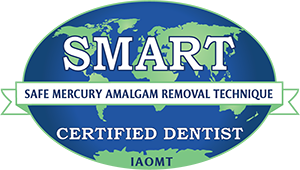What Are Cavitations? How Are They Treated?
July 5, 2023

When it comes to oral health, conversations often center on gum disease and cavities. Another issue, known as cavitations, does not get as much attention. What are dental cavitations? Why are they so serious? How can Dr. Thomas diagnose and treat this issue? Read this blog post to find out.
What Is a Cavitation?
A cavitation is a hole or spongy place in the jawbone. Often, cavitations occur after a tooth extraction. Part of the periodontal membrane that used to surround the tooth could get left behind in the socket. Therefore, your body might get tricked into thinking that a tooth is still there. As a result, the empty space will not get completely filled in with new bone tissue.
Other possible causes for cavitations include trauma, clotting disorders, and the use of certain medications.
Why Are Cavitations a Big Deal?
A cavitation can be a serious problem because harmful bacteria can collect in the empty space in the bone. A person with a cavitation may suffer from many unpleasant symptoms, including:
- Deep pain in the jaw bone
- Facial pain
- Chronic sinus congestion and pain
- A sour, bitter taste that can cause gagging and bad breath
- General fatigue and malaise
In some cases, cavitations have been found to contain significant amounts of mercury, presumably from old amalgam dental fillings. Mercury is known to be toxic and can cause a number of symptoms, such as headaches, dizziness, vision problems, and more.
How Are Cavitations Diagnosed and Treated?
Cavitations are not always easy to diagnose. They may not be readily apparent on a basic X-ray, particularly if a dentist is not specifically looking for signs of a cavitation. Fortunately, Dr. Thomas has a sharp eye and is aware of the signs and symptoms of cavitations. If she suspects one is present, she will recommend the appropriate diagnostic procedures to confirm her suspicion. For example, she might recommend that you undergo a CBCT scan, which provides a greater level of detail than an X-ray.
After a cavitation has been diagnosed, there are different treatment possibilities. For example, you might have to undergo surgery to remove dead and infected tissue. Antibiotics and/or ozone may be used to kill bacteria in the bone and promote proper healing.
Many patients find that, after they recover from cavitation treatment, they enjoy improved overall wellness and a heightened quality of life.
Dental cavitations are not often talked about, but they can be a serious issue! If you suspect you have one, it would be wise to seek diagnosis and treatment as soon as possible.
Meet the Dentist
Dr. Preetha Thomas is an experienced holistic dentist who is proud to serve the Southlake community. She is deeply concerned about the overall wellness of her patients. If you have questions about cavitations or other issues related to your oral health, she and our team would be happy to speak with you. Contact Enclave Dental at 817-912-1218.
No Comments
No comments yet.
RSS feed for comments on this post.
Sorry, the comment form is closed at this time.




